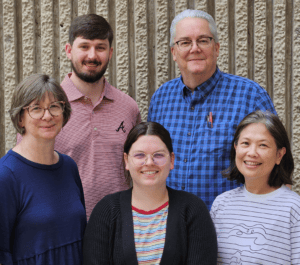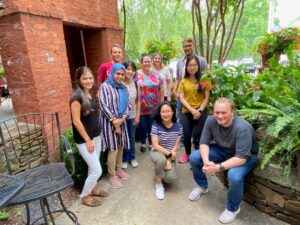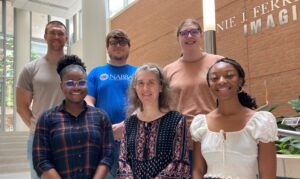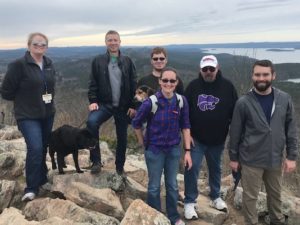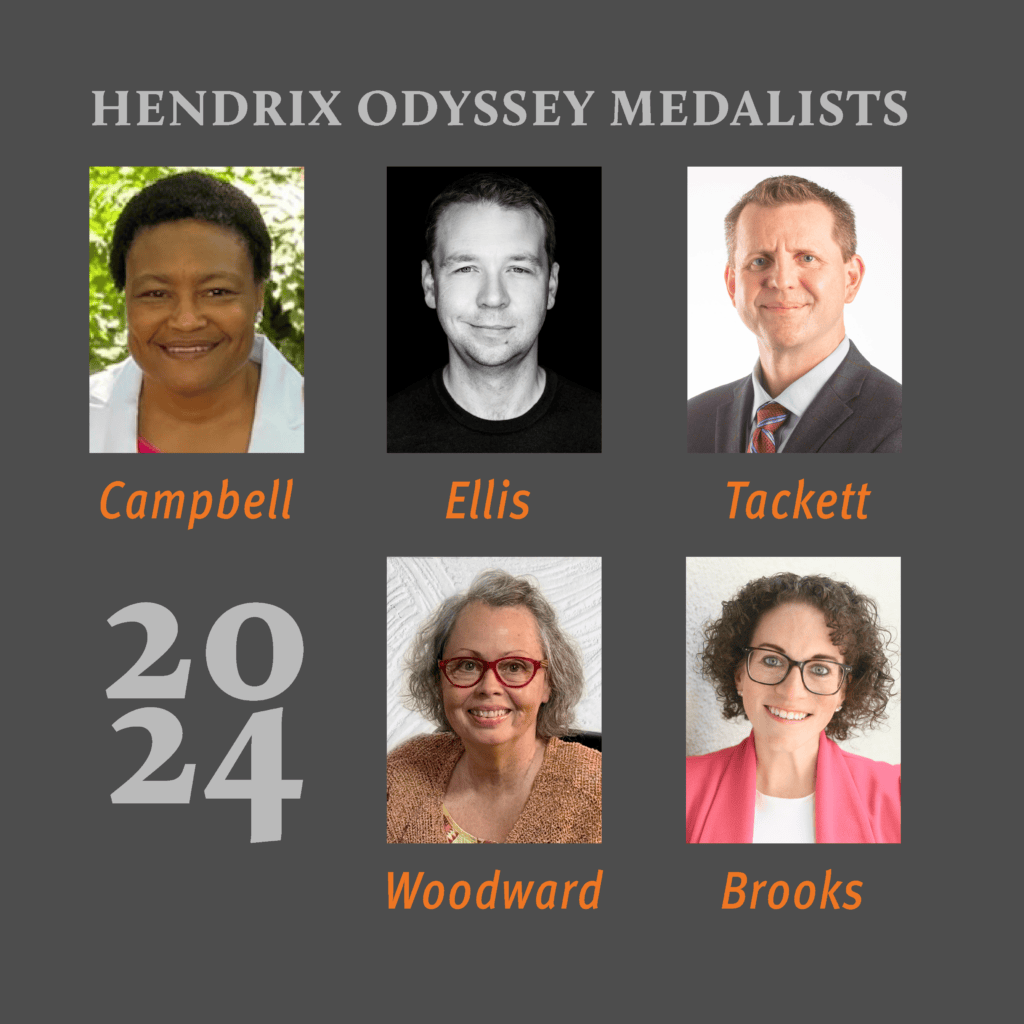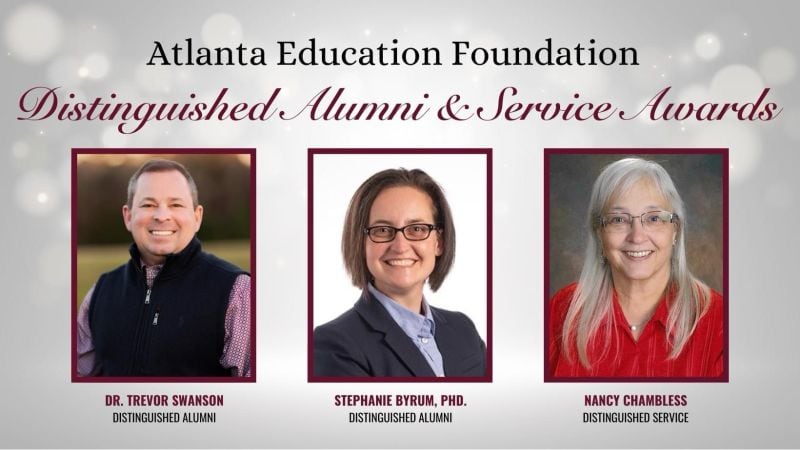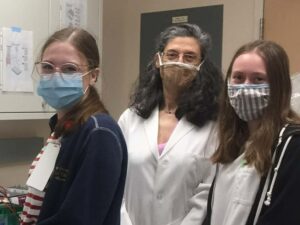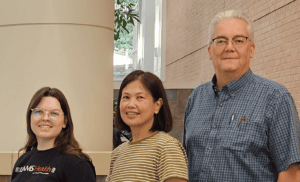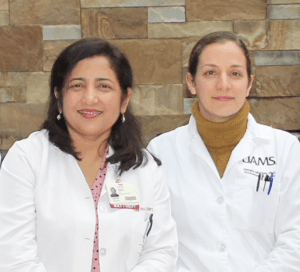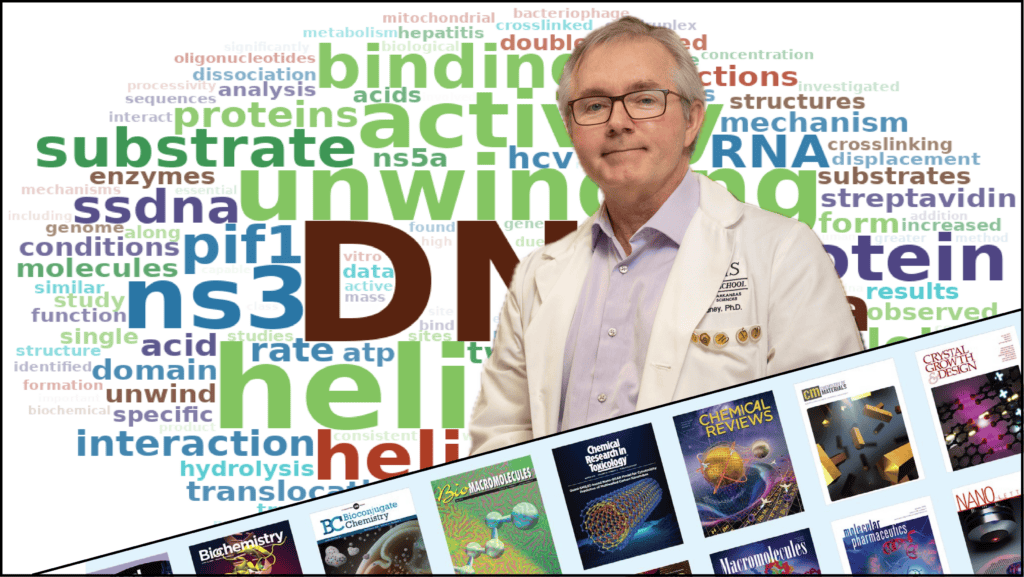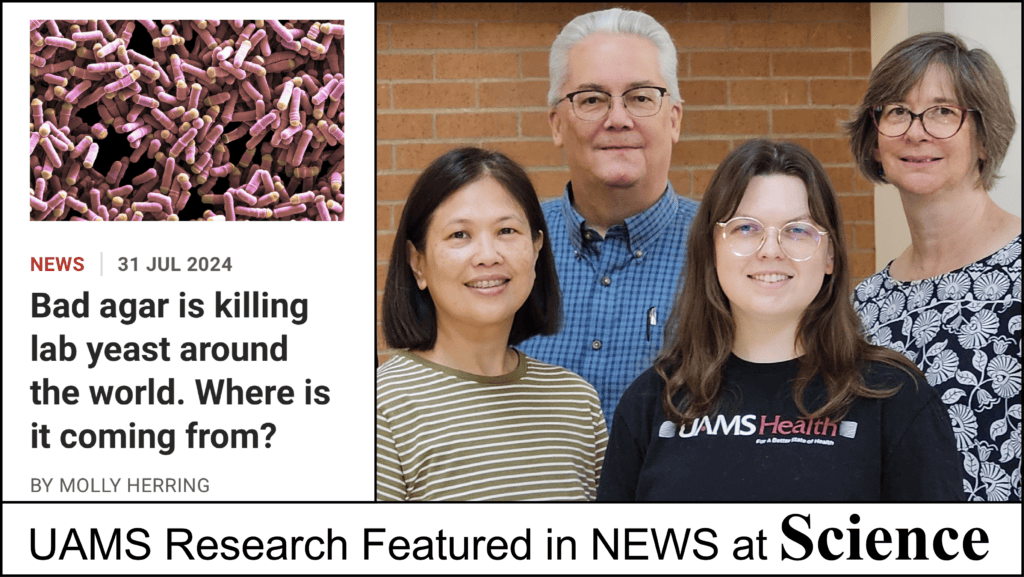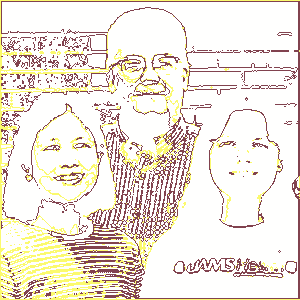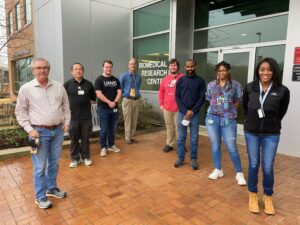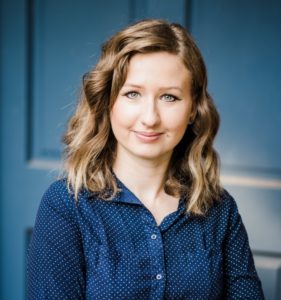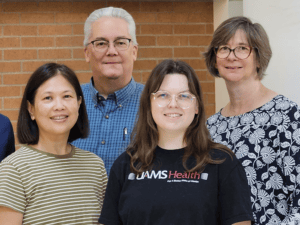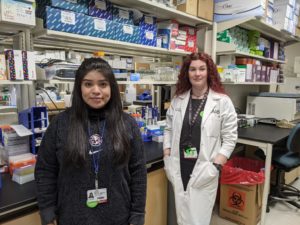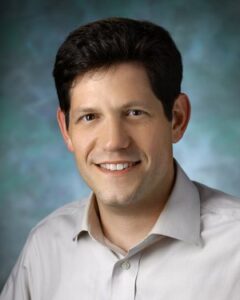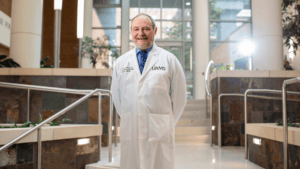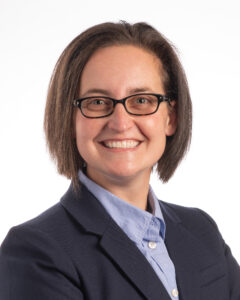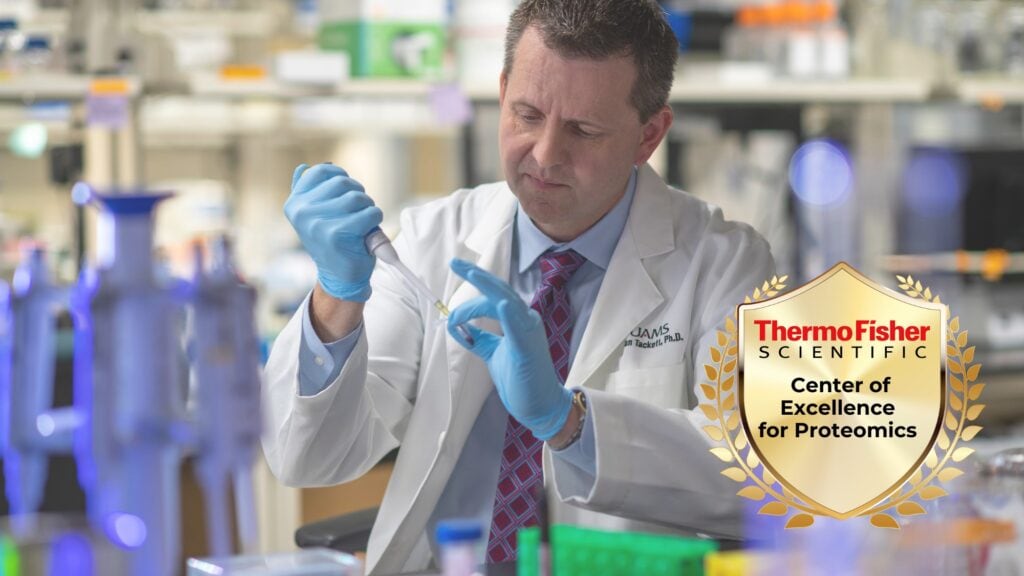
By Marty Trieschmann
Oct. 15, 2024 | The University of Arkansas for Medical Sciences (UAMS) announced the launch of the Thermo Fisher Scientific Center of Excellence for Proteomics at UAMS — the first and only academic-industry partnership of its kind in the United States.
The world leader in serving science, Thermo Fisher Scientific, entered into a formal agreement with the IDeA National Resource for Quantitative Proteomics, which was founded in 2020 with a $11 million grant from the National Institutes of Health (NIH) as the only NIH-funded proteomics service provider in the United States, providing the most cost-effective access to proteomics for any researcher in the U.S. performing biomedical research.
Proteomics allows researchers and clinicians to rapidly identify novel disease biomarkers, new drug targets and unique mechanisms driving human diseases. IDeA National Resource for Quantitative Proteomics is equipped with multiple Thermo Fisher advanced Thermo Scientific™ Orbitrap™ mass spectrometers, including the most recent installed state-of-the-art mass spectrometry technology, Thermo Scientific™ Orbitrap™ Astral™ mass spectrometer, to provide premium quantitative proteomics services to researchers.
“The Thermo Fisher Scientific Center of Excellence for Proteomics at UAMS will be a first-in-class partnership that will support research, education and outreach in proteomics not only in Arkansas but across the entire United States,” said Pushkin Pant, vice president/general manager, Life Science Mass Spectrometry at Thermo Fisher. “We will provide access to the latest and next generation technology at this site to support scientists in the United States performing biomedical research.”
“The study of proteins using proteomics is at the core of nearly all biomedical research and often serves as step one in the disease biomarker or drug discovery process,” said Alan Tackett, Ph.D., distinguished professor of biochemistry and molecular biology in the UAMS College of Medicine who directs the UAMS proteomics program.
As part of the agreement, Thermo Fisher will support annual proteomics educational workshops, and serve as a partner to provide on-site mass spectrometry technology for the NIH proteomics trainee program.
“The primary benefit of this unique academic-industry partnership is to bring the current and next-generation technology in proteomics to the UAMS campus to create a unique environment with world-class infrastructure to support biomedical researchers across the United States,” said Tackett, the inaugural recipient of the Scharlau Family Endowed Chair in Cancer Research at UAMS.
“In the past few years, we have provided proteomics access to more than 1,500 researchers across every state in the United States plus Puerto Rico and supported educational activities for over 500 faculty, students and support staff,” Tackett added. “The scope of our operation at UAMS is unmatched across academic institutions in the United States and recognized at the highest leadership levels of the National Institutes of Health.”
This first-in-kind partnership unites the industry leader in proteomics technology and solutions, Thermo Fisher, with the only academic national proteomics service provider at UAMS. This academic-industry partnership is designed to create an environment of creativity and innovation that will support discovery and development of new approaches and therapies to tackle the most challenging human diseases including cancer.

